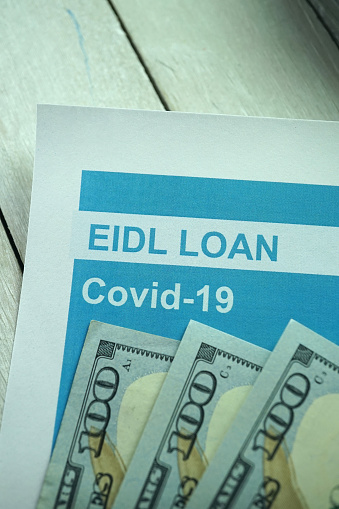How Often Are FHA Loans Denied In Underwriting?
How often are FHA loans denied in underwriting? This article contains everything you need to know about FHA loans including several reasons that could make an underwriter deny an application for an FHA loan.
A FHA loan is a house mortgage that is insured by the government and provided by a bank or other lender that has been authorized by the Federal Housing Administration (FHA).
Compared to several traditional financing, FHA loans have a substantially lesser down payment requirement, and it’s possible for applicants to have credit ratings below what’s normal.
The FHA loan is intended to assist households with poor to medium incomes in becoming homeowners. First-time homebuyers are extremely fond of them.
Various eligibility and underwriting standards apply to FHA loans than to traditional mortgages, and it benefits those who are purchasing their first homes.
First-time homebuyers can benefit from FHA loans, but they are frequently rejected in underwriting. Numerous factors may contribute to this, let’s quickly examine these.
- A high DTI ratio is the main factor preventing FHA loans from being approved.
- Several factors, including a limited wage, large debt load, and a bad credit score, can cause FHA loans to be rejected.
- FHA loans are an excellent alternative for first-time homebuyers who lack outstanding credit or the funds for a substantial down payment for a home.
- FHA loans are turned down more frequently than traditional mortgages.
ALSO READ:
Which document represents the borrower’s promise to repay the loan?
Can you go to jail for PPP loan?
How Many FHA Loans Are Denied?
Despite the fact that there is no clear statistics on how frequently FHA loans are denied during underwriting, various information sources indicate that FHA loans have a lesser closing rate than traditional mortgages on average.
A Federal Reserve analysis that examined millions of mortgage applications found that applications for federal mortgage are denied in 14% of occasions. These comprised of FHA, VA and USDA.
It was likewise found that traditional mortgage denial rates were lesser, at 10.8%. It’s important to keep in mind that traditional mortgages and FHA loans have certain peculiarities.
Furthermore, the analysis found that high DTI ratios were the main factor in mortgage approval or rejections.
What Can Make an Underwriter Deny an FHA Mortgage?
An underwriter may reject an application for an FHA loan for a variety of factors. Low credit score, heavy debt load, and a limited earnings, are the three most typical causes.
Low Credit Score
An underwriter could reject an application for an FHA mortgage due to a poor credit history or total low credit score.
If your credit score is less than 600, the majority of lenders will reject your FHA loan application.
Nevertheless, a credit score of 500 or above is suggested by the Federal Housing Administration.
Heavy Debt Load
As was already established, a high DTI ratio is the main factor in the denial of FHA loan applications.
The DTI calculates the proportion of your total monthly earnings to your outstanding debt responsibilities.
If your DTI surpasses 43%, the majority of lenders will deny your request for an FHA loan.
It’s important to remember that certain lenders may accept a DTI of up to 50%, however, if it exceeds 43%, the majority will reject your loan application.
Limited Earnings
Your high DTI may likewise be influenced by your limited earnings. Nevertheless, it’s crucial to note that borrowers must still have sufficient money to pay the down payment and related closing charges.
A 3.5% down payment is required for borrowers to be eligible for an FHA loan. If you are unable to do so, this is another typical reason why your FHA loan application may be rejected.
ALSO READ:
Is a payday loan secured or unsecured?
How long do repos stay on your credit?
Major Requirements for FHA Loan
It’s crucial to understand the FHA loan requirements if you’re seeking to get approved for one. These are the major requirements:
- The house has to be the borrower’s main home.
- A minimum 500 credit score requires a 3.5% down payment.
- 10% down payment for a credit score of 500 to 579.
- You need mortgage insurance.
- DTI must be up to 43%
If you’re a first-time home buyer and don’t have the finest credit score or sufficient money to make a sizable down payment, an FHA loan is a terrific alternative.
What Is the Duration of Time it Takes Underwriters to Approve an FHA Loan?
Numerous distinct variables affect how long it takes an underwriter to approve an FHA loan. Broadly speaking, an FHA loan should be granted in no more than two weeks if the borrower provides all the necessary paperwork on time.
Nevertheless, understanding the difference between a loan’s approval and its closing is crucial.
A loan approval basically implies that the underwriter has met all requirements and that the borrower is qualified for an FHA loan.
Loan closing is the final stage in the mortgage procedure and is when you sign all the necessary mortgage papers and assume ownership of the mortgage.
The average closing time for FHA loans is 55 days. FHA loans typically close a little later than traditional mortgages.
Are Spending Habits Considered By Underwriters?
The various facets of your spending habits which could affect your qualification for an FHA loan are examined by underwriters.
To calculate your DTI, they take into account both your income and your monthly outstanding credit commitments.
Additionally, they examine your credit history to see if you have ever been overdue with payments and the amount of credit you’ve previously racked up.
They can reject you if they notice that you don’t handle your loan responsibly in the past or that you have bad spending habits.
What to Avoid Doing during the Mortgage Underwriting Process
You ought to refrain from engaging in financial actions throughout the underwriting process that can make you ineligible for an FHA loan. You ought to refrain from doing things like:
- Buying huge items that affect your DTI
- Obtaining more loans
- Tricking your lender
- Switching occupations
- Inability to pay your present mortgage or consumer debt
Your FHA qualification may be affected if you engage in any of the aforementioned activities during the underwriting process.
Is It Possible an FHA loan close in 30 days?
An FHA loan can occasionally close in 30 days, though this is uncommon. The speed of both the borrower’s filing of all necessary paperwork and the underwriter’s approval of the loan’s terms will determine how soon this can happen.
Do I Need To Bother About Underwriting?
If you are eligible, there is no need to bother or experience any tension during the underwriting process.
Stay in touch with your lender and avoid making any significant adjustments that have bad effect.
What Should Underwriters Watch Out For?
Processing problems that create warning signals for underwriters are serious concerns. There are warning signals to watch out for with various sorts of underwriters.
However, in order to more accurately analyze financial dangers, underwriters are generally entrusted with uncovering questionable anomalies in applications.
Can a Lender Revoke An Underwriter’s Decision?
When a choice made in relation to a loan deal deviates from loan rules, an override takes place. Rule exclusions for underwriting (approval or rejection) or terms and conditions (like pricing) may be overrides.
Is It Possible for a Loan Officer to have an Impact on Underwriting?
Although the underwriter and loan officer may share a workplace, the loan officer is not permitted to try to sway the underwriter’s judgment.
The loan officer can give the underwriter data and inquire as to the factors influencing approval or rejection.
How Deep Into the Past Do Underwriters Dig?
Lenders of mortgages typically need the recent 60 days’ worth of bank statements. Consult a loan officer right away to find out more about the paperwork needed to submit an application for a home loan.
Can an Underwriter Get In Touch With My Employer?
Your employer will be called by an underwriter or loan processor to validate the details you submit on the Uniform Residential Loan Application.
Furthermore, the lender may send a fax or email to your employer to get verification of this details.
How Much Time Does It Take An Underwriter To Decide?
In light of these considerations, a day or two, or even weeks, may pass before the underwriting of a mortgage is complete.
In most cases, your whole loan file is approved for first underwriting within 72 hours of submission. In worst-case conditions, this procedure can take a month.
Is It Possible for mortgage underwriters to make exceptions?
An underwriting exception takes place when a borrower’s credit score, debt-to-income ratio, or loan-to-value ratio fall outside of the institution’s set requirements.
From a decent lending standpoint, underwriting exceptions are significant and are often assessed during a conformity check.
Keyword: How often are FHA loans denied in underwriting
Conclusion
We have come to the end of this article on “how often are FHA loans denied in underwriting.”
The purpose of the FHA loan is to help families with low medium incomes in becoming homeowners.
There are many reasons that can make an underwriter to deny an application for an FHA loan. The three most common reasons are low credit score, heavy debt load, and a limited earnings.








